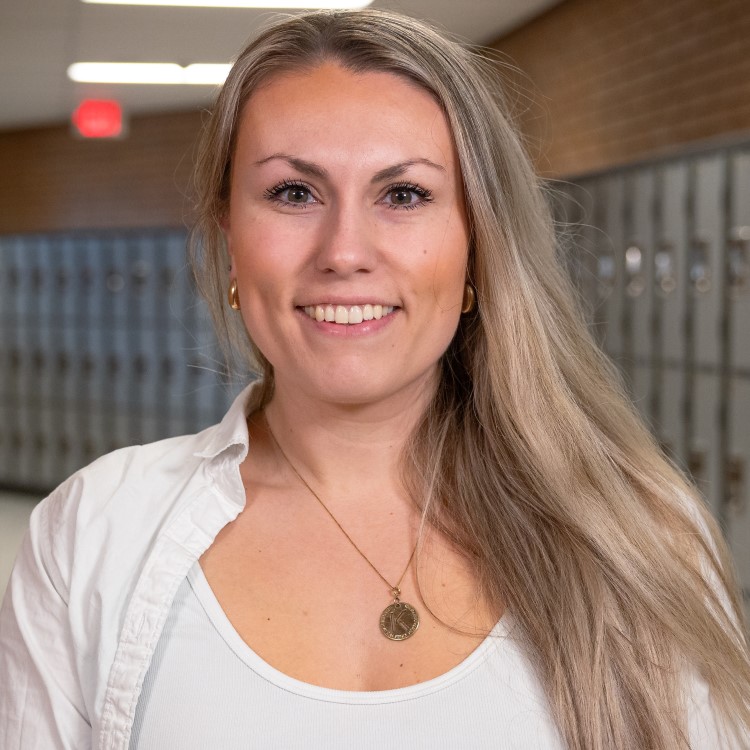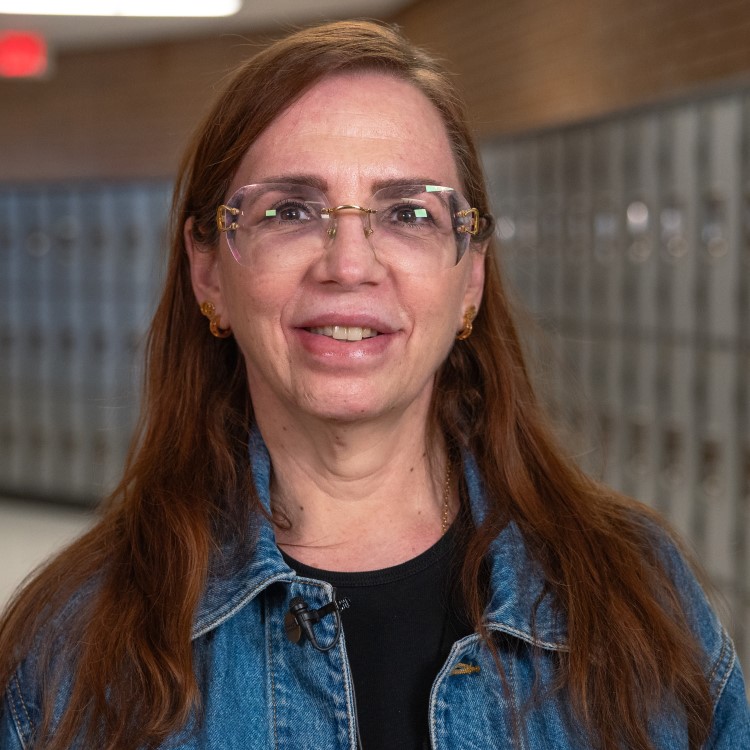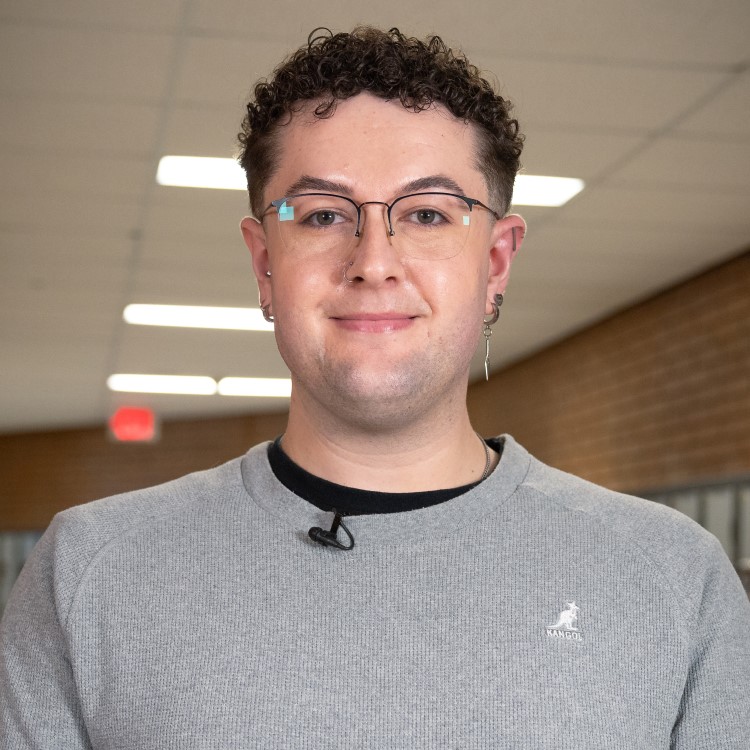

It’s natural for any new nurse to feel a kind of stage fright.
Yet every nurse — no matter how seasoned they may be today — once stood in their shoes at the starting line.
To bridge that gap, Alberta Health Services’ senior nurses recently answered career questions submitted by third-year nursing students from the University of Calgary. With topics from how to choose a specialty to building confidence in practice, nurses shared their honest, hard-won wisdom shaped by their years on the floor and early days in nursing.

Janelle Bantle is a 25-year registered nurse in both the Urgent Assessment Clinic at Rockyview General Hospital and the Cardiac Function Clinic at Peter Lougheed Centre. She juggles two nursing jobs as she sails through busy shifts with her motto: “One thing at a time.”

May Boudreau is a registered nurse in the Medical Cardiology unit at Rockyview General Hospital, She has more than 35 years on the floor between Alberta and the Philippines. She never shows up on shift without her prayer beads in her pocket.

1. What advice would you give students on where to go for their final preceptorships?
Boudreau: Choose one that aligns with your interests and offers opportunities to gain knowledge and experience, supported by a good mentor. If you can’t select a placement that matches your interests, take it as a challenge and strive to learn as much as possible—it might turn out to be the best option for you. Sometimes what we think interests us isn't truly for us, and the experience we least expect to enjoy can end up working better for us.
2. Did you ever wind up somewhere different than where you thought you would be?
Boudreau: No, because I'm open to any challenges. My goal has always been to gain knowledge and experience wherever I'm placed. I believe this mindset allows me to grow and adapt, no matter where my journey takes me.
3. Can you work casually in two totally different areas? What if I wanted to work a casual job at the hospital, but also a casual job in a clinic?
Bantle: I’ve always worked two jobs and love this about nursing. There’s so much flexibility, and it’s great to work in two totally different areas. It allows you to grow and learn at each site.

4. What do you wish you’d known as a new nurse? What would have made your career easier?
Boudreau: I wish I‘d known that it’s OK to ask questions. When you're new, it can be challenging to seek help because of the pressure to know everything. But I've come to realize that asking questions is one of the most important tools for gaining knowledge and understanding. It shows desire to learn and should be seen as a strength, not a weakness. It also builds relationships, trust and respect with your team.
5. How do you approach decision-making in a high pressure situation, like a code or a rapid response?
Bantle: I call for help, take a breath and run through in my mind the priorities. Start with the most important thing.

6. What's one piece of advice you wish someone had given you starting out?
Bantle: It is OK to not know everything. Look it up, educate yourself and don’t be so hard on yourself.

7. Why did you go into nursing? Why did you stick with it?
Boudreau: I was in Grade 3 when I told myself I will be a nurse. Growing up I loved seeing nurses in white uniforms, showing grace and compassion to their patients. And I became a nurse. I continue to stay in this profession because it completes me. It doesn't matter how hectic or busy the day is. At the end of the day, I feel fulfilled, knowing I was able to help someone — even with something as simple as holding their hand. I also love mentoring and supporting new nurses, helping them grow and flourish in their careers.

8. What are the most important skills a nurse should develop early on?
Boudreau: Effective communication. It underpins every aspect of patient care and teamwork. It enables a clear, compassionate and confident way of conveying information. This builds trust with patients, team collaboration and advocating for patients.

9. What would you say to a new grad nurse who’s struggling to build confidence in clinical decision-making?
Bantle: Put your patient first, always. Ask questions even if you’re scared or unsure. (Especially if you’re scared or unsure.) You’ll go home knowing that you did the right thing. I’m shy, and this took a while for me to put into practice. Speak up when your intuition tells you to.
10. What tips and tricks help you stay on top of your shift tasks and work list?
Bantle: I like organizational tools such as lists, schedules and cheat sheets to organize my brain into what’s the most important. Then I cross off the list as I go, so I don’t forget anything. Paper or Connect Care (electronic medical record) lists work.

11. How did you manage your patient workload when you first started working?
Bantle: I used cheat sheets to organize patient care and often came a bit early at first. This didn’t last long, but it helped me build my confidence and finish my work. Work-life balance is important, too.
If you’re enrolled in a registered nurse or registered psychiatric nurse program, you can work for AHS as an Undergraduate Nurse Employee (UNE).